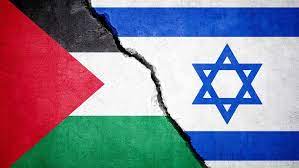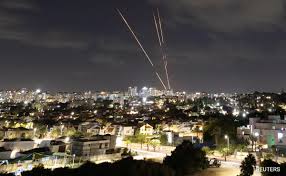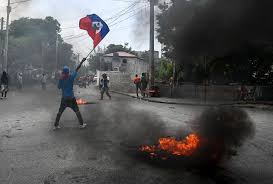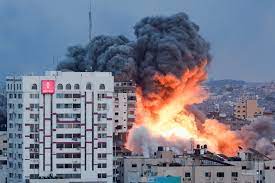Let’s take a deeper look into the history of the Israel-Palestine conflict.
Early 1900s: British promote Zionist movement to establish a ‘national home’ for Jewish populations
The Balfour Declaration, issued by the British government in 1917, announced Britain’s promise for a national home for the Jewish people in Palestine, which was then under the rule of the Islamic Caliphate: the Ottoman Empire. The promise appeased the Zionist movement, which believed in the Jewish right to the land of Jerusalem, or, Zion. Following the end of World War I, the region of Palestine was forfeited by the Ottoman Empire and was placed under the rule of the British via a mandate from the League of Nations.
1947-48: Partitioning Palestine into two states, beginning of Arab-Israeli War
In February 1947, the British proposed that the United Nations consider the future of Palestine and take over relations in the region amid ongoing tension. The United Nations later adopted a resolution to split Palestine into two independent states — a Jewish State and an Arab State with Jerusalem under UN trusteeship, despite opposition from Palestinian Arabs of the region. Jerusalem, a city with religious significance to many groups, would remain under international control administered by the United Nations. Palestinians refused to recognize the resolution, and violent conflict between both groups continued. On May 15, 1948, Israel declared independence, thus beginning the Israeli-Arab War, with five Arab states fighting against the creation of the state
1967: Six-Day War
On June 5, 1967, after a prolonged conflict between Israel and Egypt, the Six-Day War, also known as the Arab-Israeli War, broke out between Israel and its Arab neighbors. After the Six-Day War, Israel captured Palestinian-Arab territories of the West Bank, East Jerusalem, Gaza, and the Sinai Peninsula, as well as the Syrian territory of Golan Heights.
1987: First Palestinian ‘intifada,’ or uprising, occurs
The first yearslong uprising from Palestinian forces in their struggle for self determination began in 1987. It ended in 1993, when Israel’s then-Prime Minister Yitzhak Rabin, and then-leader of the Palestine Liberation Organization Yasir Arafat signed the Oslo accords, which declared the PLO as a representative for the Palestinian people and recognized Israel’s right to exist in peace, according to the United States Department of State.
Israel imposes blockade
Following the armed takeover, the surrounding countries of Israel and Egypt imposed a blockade on the Gaza Strip which greatly restricts the movement of people and goods into and out of the area. These restrictions have been a concern of humanitarian groups around the world about the conditions in which national residents are forced to live.
2023: The incursion against Israel by terrorist group Hamas
At least 1,400 people have died and 4,562 others have been injured in Israel after the Palestinian terrorist militant group Hamas launched an incursion on Saturday, Israeli authorities said. Israeli forces have responded, declaring “a state of alert for war” and launching hundreds of retaliatory airstrikes on Gaza. Palestinian authorities said at least 3,478 have died and another 12,065 have been injured in Gaza by the Israeli response. In the wake of the Hamas attack earlier this month, Israeli defense officials said the flow of all food and power to Gaza was being cut off in preparation for a “total siege.”







